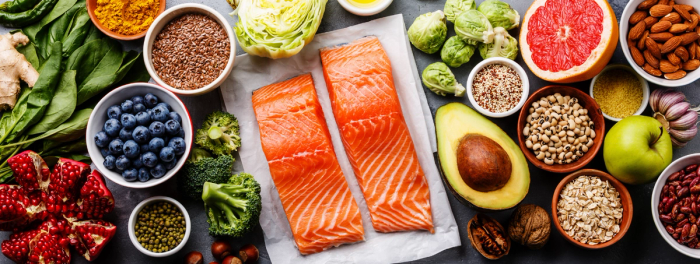question
are there any specific diets that help to ease arthritis symptoms?
When it comes to managing arthritis symptoms through diet, there isn't a singular diet that has been proven to cure arthritis. However, certain dietary patterns may help ease symptoms for some individuals. In my sources, several dietary approaches are highlighted that could potentially benefit those living with arthritis.
Key Dietary Approaches
-
Mediterranean Diet:
- This diet is rich in plant-based foods, including fruits, vegetables, wholegrains, legumes, nuts, and seeds.
- It incorporates healthy fats, particularly from olive oil, and includes moderate amounts of fish and lean meats.
- Research suggests that the Mediterranean diet may help reduce inflammation and manage pain associated with various types of arthritis.
-
Plant-Based Diet:
- A plant-based diet focuses primarily on foods from plant sources, such as fruits, vegetables, wholegrains, nuts, seeds, and legumes.
- While this diet can increase your intake of vitamins and lower fat levels, it’s essential to ensure you’re still getting adequate nutrients, such as iron and vitamin B12, which can be lacking in strict vegetarian diets.
-
DASH Diet:
- The Dietary Approaches to Stop Hypertension (DASH) diet is designed to lower blood pressure but may also reduce inflammation.
- It encourages a variety of foods, including fresh fruits, vegetables, wholegrains, and low-fat dairy, while limiting saturated fats and sugars.
Anti-Inflammatory Foods
Incorporating anti-inflammatory foods into your diet can be beneficial. Some key components include:
- Omega-3 Fatty Acids: Found in oily fish (like salmon and sardines), flaxseeds, and walnuts, these fats may help reduce inflammation.
- Antioxidants: Colourful fruits and vegetables are rich in antioxidants, which combat oxidative stress associated with arthritis.
- Healthy Fats: Replacing saturated and trans fats with healthier options, such as olive oil and avocados, may help manage symptoms.
Foods to Limit or Avoid
While there is limited evidence on specific foods that universally affect arthritis, some individuals report improvements by reducing certain items:
- Processed Meats and Sugars: These may exacerbate symptoms for some people.
- Saturated Fats: Found in red meat and full-fat dairy, these fats can increase inflammation.
- Potential Trigger Foods: Some individuals may identify specific foods that worsen their symptoms. Keeping a food diary can help track these reactions.
Individualisation is Key
It's important to remember that arthritis affects everyone differently. What works for one person may not work for another. Therefore, individualising your dietary choices based on personal health conditions, preferences, and cultural considerations is crucial.
Seeking Professional Guidance
Before making significant dietary changes, it’s advisable to consult with a healthcare professional or an Accredited Practising Dietitian. They can help tailor dietary choices to your specific needs and ensure you’re meeting your nutritional requirements.
Conclusion
While no diet can cure arthritis, adopting a healthy, balanced diet that includes anti-inflammatory foods may help manage symptoms and improve overall wellbeing. The Mediterranean and plant-based diets offer promising frameworks for those looking to adjust their eating habits. Remember, gradual changes are often more sustainable, and keeping a food diary can provide valuable insights into how different foods affect your symptoms.
If you have further questions or need more specific advice, please consider consulting a healthcare professional.
This information is not a substitute for professional medical advice, diagnosis or treatment. Always consult a registered healthcare professional about matters that affect your health. Clara uses artificial intelligence to generate general information for personal educational purposes only, not intended to be a management plan and it may contain errors, inaccuracies or may oversimplify concepts.






